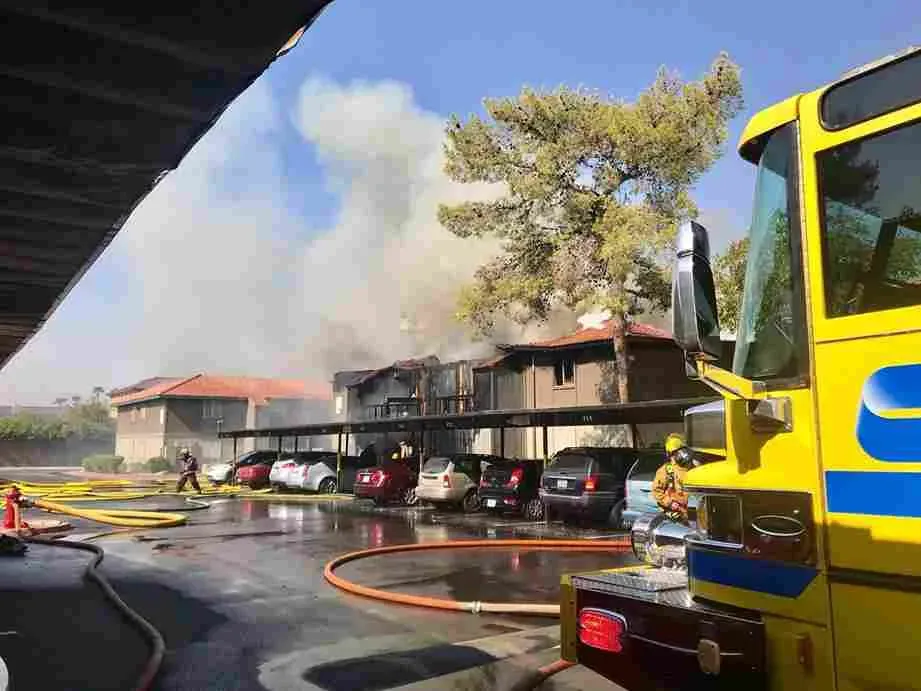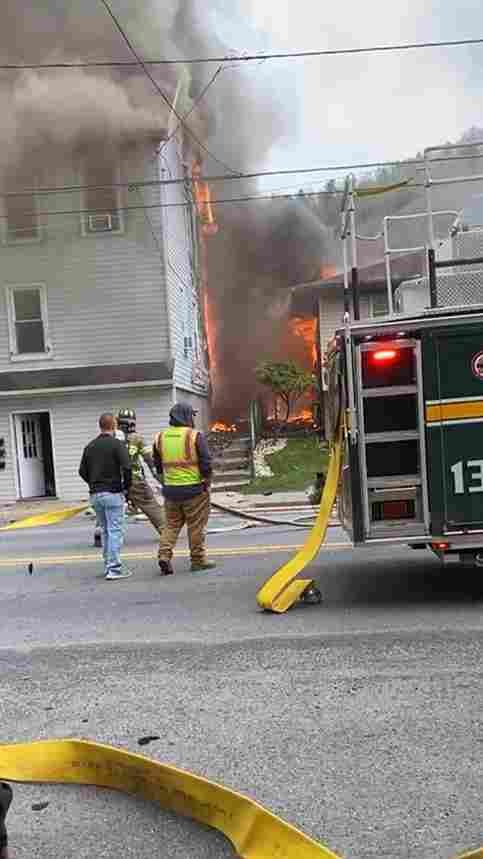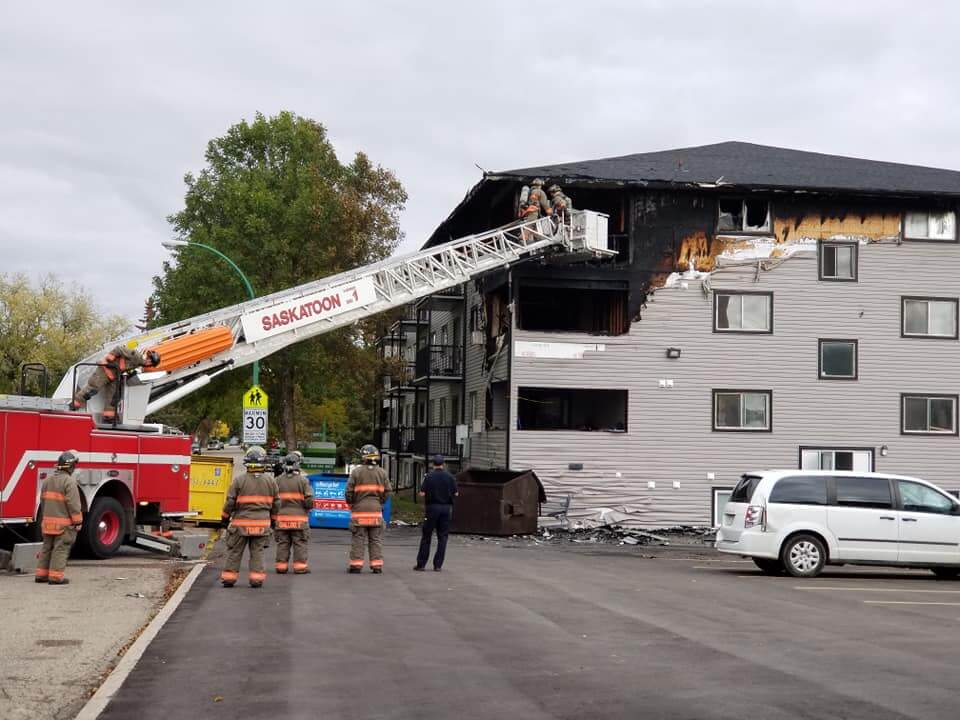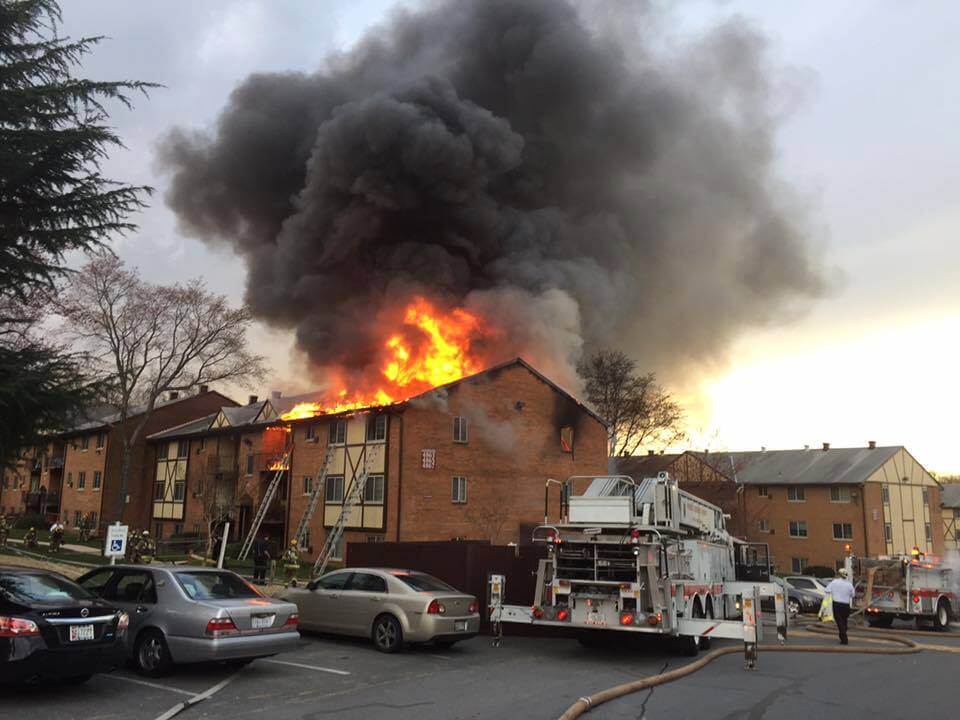Can A House Fire Cause PTSD [Extensive Guide]
As with any traumatic event, a house fire leaves victims with immediate and long-term effects that can include anger, isolation, and numbing feelings. While the initial danger is over once the fire is extinguished, victims are left with an aftermath that can last for months or years. The site of the fire, once filled with comfort and familiarity, is now a bleak description of chaos, sadness, and loss, where precious objects and resources have been destroyed, leading to irritability and concentration problems. Victims must face the ordeal of the recovery process, adjusting their routine and making tough life decisions as they rebuild their lives.
At first glance, it may not seem like a house fire could cause post-traumatic stress disorder (PTSD), but research has shown that as many as 20 percent of people who experience a home fire will develop PTSD. Even though most individuals in danger from a house fire escape without injury or death, the circumstances are almost always extremely frightening. They can involve significant risks to one's safety and bring challenges on their road to recovery, leading to feeling on edge, sleep problems, and dissociation as the mind navigates through triggers and avoidance.
We'll look into exactly what PTSD is, why some people get it after a house fire, and what support sources are available, should you suffer from the after-effects of this traumatic event. In order to regain a sense of normalcy, it's essential to have access to the right assistance and resources.

What Is Post-Traumatic Stress Disorder?
PTSD is an anxiety disorder that develops after you experience a traumatic event. Traumatic events involve actual or threatened death or serious injuries, such as violent personal assaults, natural disasters, human natural disasters, accidents, war, and terrorist attacks.
Understanding Traumatic Events: Not all traumatic events lead to PTSD. Most people who experience trauma don't develop it. But if you're one of them, you may find that the symptoms of PTSD can get in the way of your daily life.
Symptoms typically begin within three months of the traumatic event, but they can begin years later. They tend to last at least a month but may persist for many years. There are two types of PTSD: acute and chronic. Acute PTSD is usually resolved within three months after an incident, while chronic PTSD is associated with more severe symptoms that last more than a month but less than six months after the initial trauma occurs.
Can You Be Traumatized By A House Fire?
Yes. A house fire can be a traumatic event. If you are the one who starts the fire, or if you witness someone else starting the fire, it can be even more traumatic because of the guilt associated with being responsible for causing an emergency that could have killed others. Even if you didn't start the fire but did respond to it as an emergency responder, you may experience some trauma. If your home was damaged or destroyed by a fire, this may cause additional stress and depression..
Sometimes its just better to sell the home and move forward with life. Send a friend or a restoration company to salvage what they can. Even if you feel like the fire was started from someone's negligence, speaking to an attorney may be helpful.

What are the symptoms of PTSD?
The PTSD symptoms include:
- Avoiding places like kitchens, events, and things that remind you of the trauma (like fire)
- Intrusive thoughts about the trauma (flashbacks)
- Nightmares or frightening dreams about the trauma (nightmares)
- The sight of smoke may create flashbacks
- Feelings of anxiety and startle responses when reminded of the trauma (hypervigilance)
- Sleep disorders or staying asleep due to nightmares or intrusive thoughts about the trauma (insomnia).
How Does Emotional Trauma Occur?
Emotional trauma occurs when a person experiences a traumatic event that threatens their life, safety, or physical integrity. A traumatic event may involve the actual or perceived threat of death, serious injury, or sexual violence. It may also include threats to one's own or someone else's physical health, exposure to actual or threatened violent behavior, and natural disasters such as earthquakes, floods, and fires.

What Are Some Proven Stress-Reduction Techniques?
There are many ways to reduce stress, but the most important thing is to find what works best for you. The following are some suggestions:
Exercise.
You don't have to run marathons or be in great shape to incorporate physical activity into your daily routines. Anyone can try walking 30 minutes three times a week or doing 30 minutes of yoga once a week as part of their lives. There are plenty of physical activity options that cater to your individual needs and preferences, whether it's for work or leisure.
Meditation and mindfulness training.
Mindfulness-based cognitive therapy (MBCT) has been shown to help people who experience recurrent depression, anxiety disorders, and grief-related memories. MBCT is a kind of meditation that helps people become more aware of their thoughts and feelings without getting caught up in them. Studies show that MBCT can help prevent relapses in people with recurrent depression and improve overall well-being, making it a valuable tool for enhancing mental security.
Breathing exercises.
Deep breathing is an effective way to relax the body and mind. It helps bring oxygen into the body, which can help lower blood pressure and ease tension in the muscles. This simple technique can aid those facing mental and physical pain or emotional distress, creating a sense of calmness in their daily routines.
How Do You Help Someone With PTSD From A Fire?
It can be difficult to offer support groups to someone with PTSD, especially if they don't want to talk about it. However, there are some things that you can do to help them. Offering advice and being a comforting presence can make a significant difference in their recovery, showing them that they're not alone in coping with the challenges they face.
Be patient
If your loved one is experiencing flashbacks or nightmares, give them time and space. Do not try to force them into talking about the trauma. If they are ready and willing to talk about it, let them know that you're here for them whenever needed.
Avoid trigger words
Try not to use words like "fire" or "explosion" when talking about the event. In fact, try instead using words like "emergency." It will help release negative emotions associated with the event, which can be a significant amount of fear and anxiety that is ingrained in the minds of those affected.

House fires can be traumatic, not only for the people who were home at the time of the fire, but also for their loved ones, pets, and even humans living nearby. Survivors whose homes have been damaged or destroyed by fire often experience PTSD. This destruction can leave them with lingering fear and negative mental states. The condition may include flashbacks, nightmares, and an inability to sleep well. A person with PTSD may also become anxious or depressed after a house fire. In some cases, these feelings can last for months or years after the cause of the fire itself.
Is A House Fire Always A Traumatic Event?
A house fire can profoundly affect a person's health, both physically and mentally. It can trigger stress, anxiety, and even depression that may last for years after extinguishing the fire, which is why maintaining a sense of security and establishing healthy routines is crucial in their lives.
- Burns, smoke inhalation, and carbon monoxide poisoning
- Respiratory problems from smoke damage to the lungs
- Sinus symptoms from exposure to soot and dust particles
- Eye irritation from smoke particles that get into the eyes
- Headaches or migraines from headaches caused by the stress of being trapped in a burning building
- Other possible physical injuries include broken bones due to falling or jumping out of windows to escape the flames (called "jumpers").
WE CAN HELP WITH ANY SITUATION AND WE'RE READY TO GIVE YOU A FAIR CASH OFFER!
Enter Your Information Below it is Quick, Easy & Free!
Get Cash Offer
How Long Does It Take To Recover From A House Fire?
The length of time it takes for someone to recover depends on many factors, such as age and gender. It also depends on whether they have other underlying mental trauma such as depression or anxiety. In general, though, most people will begin to feel better within three months of their experience with PTSD after a house fire. That is why it is important to seek help immediately after the event, to begin coping and working towards a sense of normalcy in their lives.
How Do You Mentally Recover From A House Fire?
You can recover from the trauma of a house fire in three main ways:
1) With time and support from others, you can heal naturally and regain your balance over time.
2) You can learn to cope with anxiety, depression, and other symptoms by using coping skills and techniques that effectively deal with PTSD (post-traumatic stress disorder).
3) You can get treatment from a mental health professional specializing in treating PTSD and other mental health conditions related to traumatic events such as house fires.
How Many People Are Affected By House Fires?
According to the Centers for Disease Control, approximately 3-400 people die in residential fires every year.This number has remained relatively constant over the past decade despite improvements in home fire safety. In addition, approximately 20,000 people, including children, are injured in residential fires each year, making this crisis a constant source of tragedy and something that touches the lives of friends and family members.
What Do You Give Someone After A Fire?
Losing a home can cause significant emotional distress and feelings of hopelessness. When someone has experienced trauma from a house fire, the best thing to do is to offer the community support during their recovery process. Engaging in uplifting activities and making decisions that promote unity can be a great advantage. You don't have to say anything about the fire — listen if they want to talk about it. If they don't want to talk about it right away, don't push them — let them know that you're there for them. Sometimes, just offering a place to stay can make a significant difference.
What Do You Do When You Lose Everything In A Fire?
Every fire is unique, making it difficult to give a one-size-fits-all answer. But here are some steps you can take to help get you through the aftermath of a home fire.
1. Get medical attention as soon as possible, especially if there are any adverse reactions.
2. Contact your insurance agent or company
3. Stay safe and out of the house until it's clear there are no other hazards (smoke or fire) in the area.
4. Document everything that was lost in the fire with photos and video, if possible
5. Seek counseling if needed
Can You Get PTSD From A Burn?
Yes, it is possible to develop PTSD from a house fire. Although most people who have experienced trauma do not develop PTSD, some people are more vulnerable than others. Those who have been traumatized in the past (by another house fire) or have a family member's history of mental health problems may be at risk of developing PTSD after experiencing another traumatic event.
How Do You Get Over Fire Trauma?
The answer to this question depends on the severity of your trauma and how long you've been feeling the effects. If you're having trouble coping with your PTSD symptoms, talking to a professional therapist can be helpful. They may also recommend self-care strategies that you can use to help yourself cope with your anxiety and stress. Positive feelings can begin to re-emerge as the focus shifts towards the future, moving past the disaster.

Happy Customers




